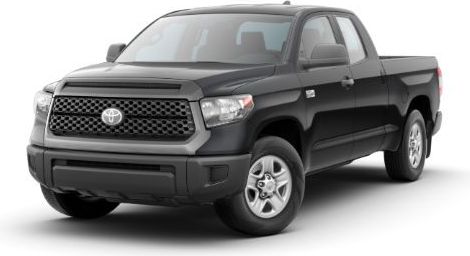
Car accidents are unfortunately common occurrences that can lead to serious consequences, both physically and financially. In the aftermath of a collision, understanding the complex landscape of legal rights and financial responsibilities becomes crucial. Determining who is responsible for covering the various expenses arising from a car accident can be challenging, and it often involves navigating a web of insurance policies and legal intricacies. This article aims to shed light on the question that arises in the aftermath of a car accident: Who pays for what?
The Role of Insurance Policies
One of the primary factors influencing the financial aftermath of a car accident is the insurance coverage held by the parties involved. In many cases, insurance companies step in to cover the costs associated with property damage, medical bills, and other related expenses. However, the specific details can vary based on the type of insurance policies held by the parties.
Liability insurance typically covers the at-fault party's responsibility for bodily injury and property damage, while personal injury protection (PIP) or medical payments coverage may help cover medical expenses, regardless of fault. Uninsured or underinsured motorist coverage can also come into play if the at-fault party lacks adequate insurance. Understanding the nuances of these policies is crucial in determining who bears the financial burden after a car accident.
Establishing Fault and Legal Ramifications
Determining liability is a crucial aspect of ascertaining who pays for the aftermath of a car accident. The legal system uses various methods to establish fault, including police reports, eyewitness accounts, and expert testimony. In some jurisdictions, the concept of comparative negligence may be applied, where each party involved in the accident is assigned a percentage of fault. The financial responsibility is then distributed accordingly. Legal ramifications can extend beyond insurance claims, as injured parties may pursue personal injury lawsuits to seek compensation for damages not covered by insurance. These legal proceedings can involve negotiations, settlements, or even court trials. Understanding the legal landscape is essential for individuals seeking fair compensation for their losses.
Non-Economic Damages and Beyond Insurance
Beyond the direct costs covered by insurance, there are often non-economic damages that can significantly impact the lives of those involved in a car accident. These may include pain and suffering, emotional distress, and loss of enjoyment of life. Determining who pays for these non-economic damages can be complex and may require legal expertise. In some cases, individuals may seek compensation for these damages through personal injury lawsuits. Additionally, if the at-fault party is uninsured or underinsured, it may become challenging for the injured party to recover the full extent of their losses. Exploring legal options and understanding the limitations of insurance coverage are crucial steps in securing comprehensive [h]compensation after a car accident.
The Role of Personal Injury Attorneys
Engaging the services of a qualified personal injury attorney can significantly impact the outcome of a car accident case. As explained by experts from blumenshinelawgroup.com, these legal professionals specialize in navigating the complexities of personal injury law and can provide invaluable guidance throughout the process. Personal injury attorneys are well-versed in negotiating with insurance companies, establishing fault, and maximizing compensation for their clients.
They play a crucial role in ensuring that individuals affected by a car accident receive fair and just compensation for their losses. From gathering evidence to representing clients in court, personal injury attorneys bring expertise to the table, helping to level the playing field between individuals seeking compensation and the often formidable insurance companies. In the aftermath of a car accident, consulting with a skilled personal injury attorney can be a vital step toward understanding one's legal rights and securing the financial recovery to which they may be entitled.
Mediation and Alternative Dispute Resolution
In many car accident cases, parties involved may opt for mediation or alternative dispute resolution (ADR) to settle claims without going through lengthy court battles. Mediation involves a neutral third party facilitating negotiations between the parties to reach a mutually agreeable settlement.
ADR methods can be faster and more cost-effective than traditional litigation, allowing individuals to resolve their disputes more amicably. Mediators guide discussions, helping parties explore potential resolutions and avoid the uncertainties of a court decision. While not suitable for every case, mediation and ADR can offer a more flexible and cooperative approach to resolving disputes arising from car accidents.

Uninsured Motorist Coverage and Legal Safeguards
Understanding the importance of uninsured and underinsured motorist coverage is crucial for individuals seeking comprehensive protection after a car accident. In situations where the at-fault party lacks adequate insurance, uninsured motorist coverage can step in to cover medical expenses and property damage. This additional layer of insurance acts as a safeguard, ensuring that individuals are not left with substantial financial burdens due to another driver's lack of insurance. Recognizing the value of this coverage and its legal implications is vital for individuals who want to enhance their protection and secure adequate compensation, even when dealing with uninsured or underinsured motorists.
Car accidents bring about a myriad of challenges, both in terms of physical well-being and financial stability. Navigating the complex landscape of legal rights, insurance policies, and potential legal action can be overwhelming. However, by understanding the role of insurance, establishing fault, considering non-economic damages, engaging personal injury attorneys, exploring alternative dispute resolution, and recognizing the importance of uninsured motorist coverage, individuals can navigate the aftermath of a car accident more effectively. Seeking legal advice and taking proactive steps toward securing fair compensation can make a significant difference in the recovery process. In the face of uncertainty, knowledge and informed decision-making become powerful tools for those grappling with the aftermath of a car accident.




